Microcement Countertops: Versatile, Stylish, and Durable
Microcement is transforming modern interiors, offering a seamless, high-performance surface for everything from floors to furniture. While microcement floors and walls are widely popular, countertops have emerged as a standout application. Their smooth, continuous finish, diverse color options, and durability make them an ideal choice for kitchens, bathrooms, cafes, and commercial spaces.
Let’s explore why microcement countertops are becoming a top trend in interior design.
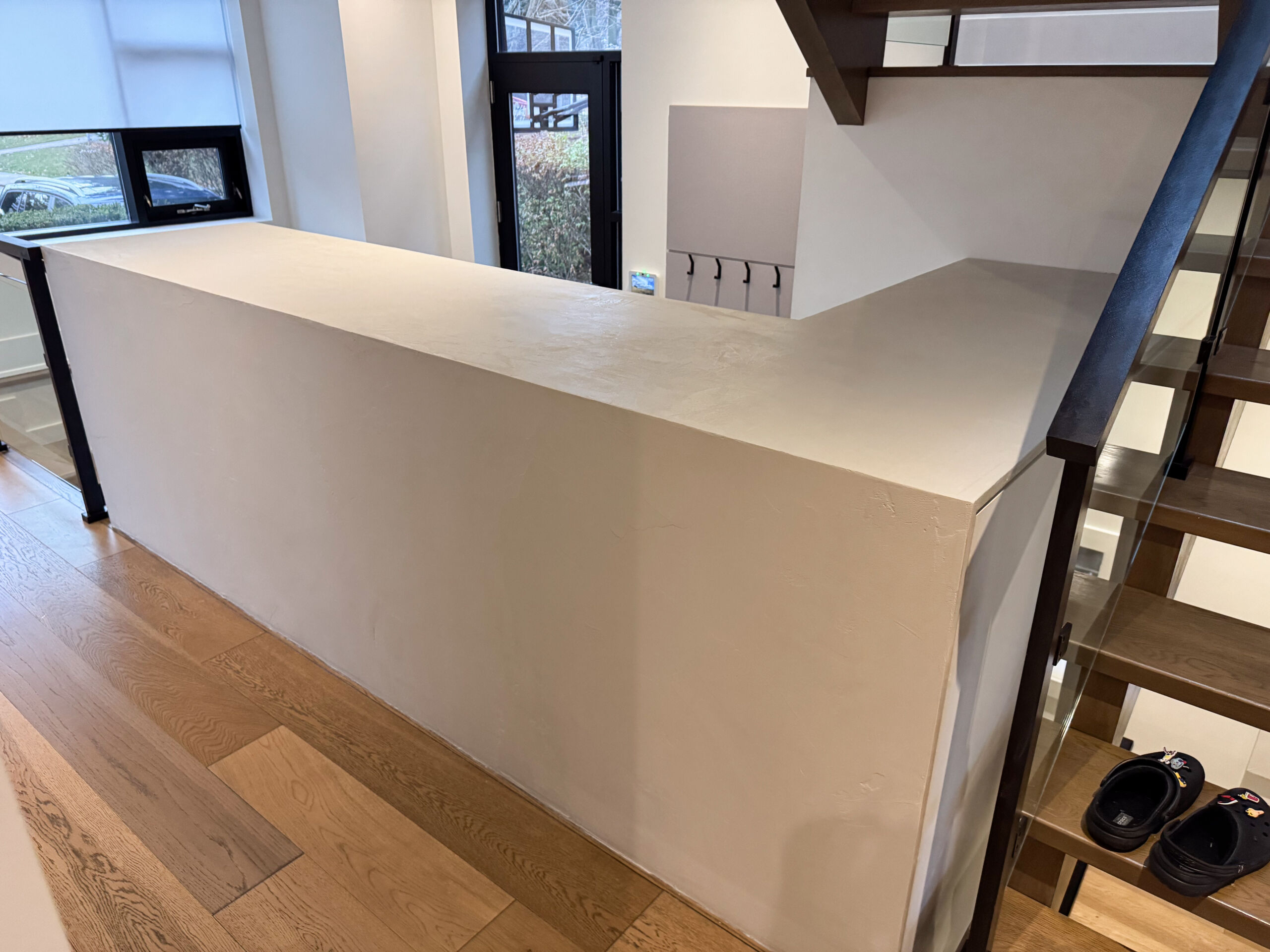
Why Choose Microcement for Countertops?
Can You Put Microcement on Tiles?
Yes, microcement can be applied directly over tiles, making it an excellent solution for quick and efficient makeovers. Its thin, seamless layer adheres well to various surfaces, covering unsightly grout lines and creating a modern, uniform finish.
What Can You Put Microcement Over?
- Kitchen Range Hood: A micro concrete finish on a range hood creates a striking focal point in the kitchen. It adds texture and interest without overpowering other design elements, blending seamlessly with both modern and industrial styles.
- Kitchen Backsplash: A micro concrete backsplash offers a sleek, easy-to-clean surface that’s resistant to stains and heat, making it ideal for high-use areas. Its seamless application also ensures no grout lines, resulting in a more polished look.
- Floors
- Walls
- Countertops
- Showers and wet areas
- Stairs
- Fireplace Wall
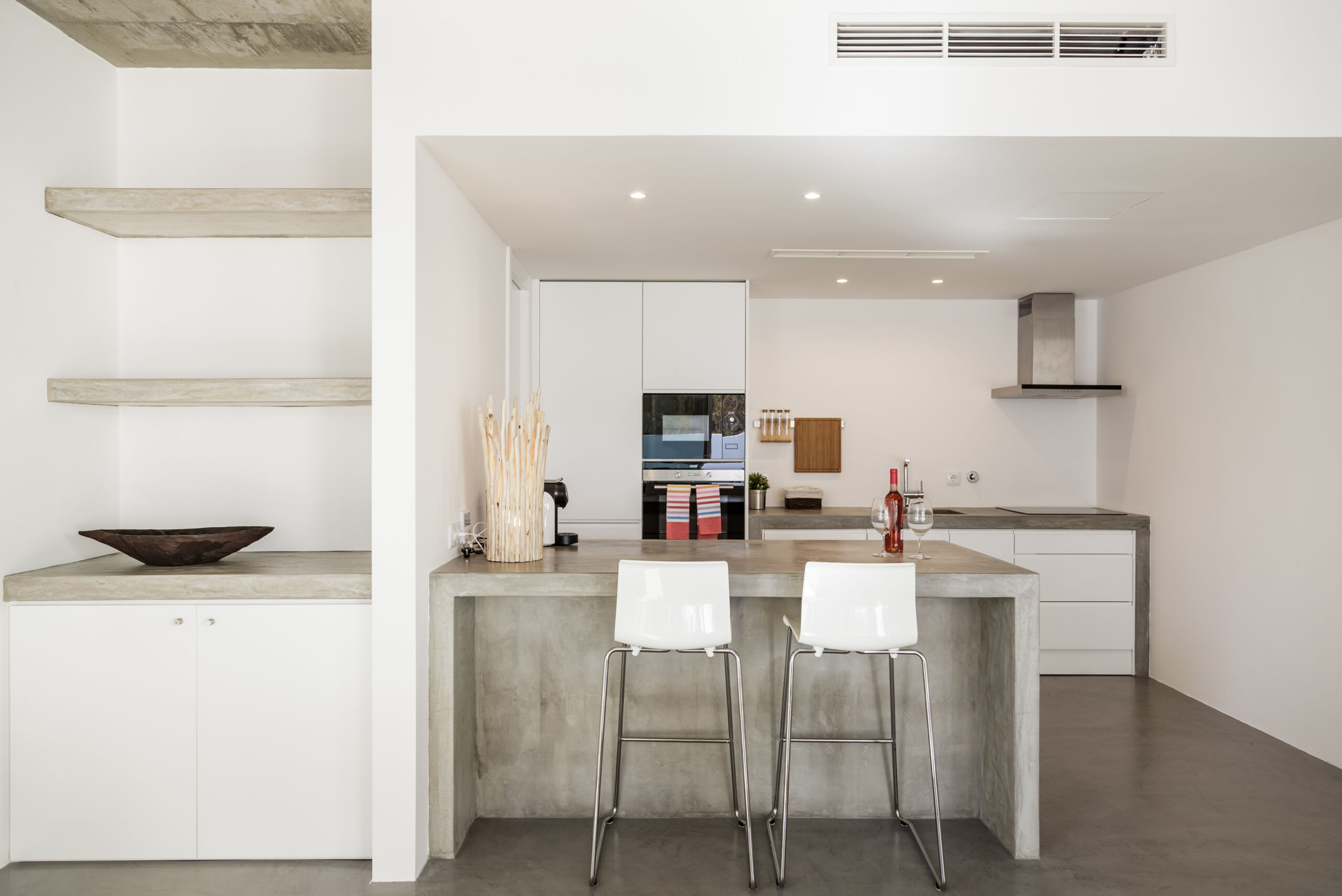
Speak To Shayan 416 (606) 8060 or Request A Quote
Integrated Sinks, Drainage Grooves, and Cut-Outs
Microcement countertops offer a seamless and modern aesthetic, perfectly complementing built-in appliances and fixtures. To maintain a cohesive design, countertops can be custom-built around hobs, cooktops, and other kitchen elements for a flawless flow. For an even more integrated look, undermount sinks can be securely fixed before applying microcement, creating a smooth, continuous surface. Alternatively, precise cut-outs can be made to accommodate sinks separately. Drainage grooves can also be routed into the base material before applying microcement, ensuring both style and functionality.
Why Microcement Is Perfect for Covering Old Tiles
Microcement is a game-changer for those looking to update tile surfaces without extensive renovation work. It offers a sleek, grout-free finish, perfect for creating a timeless, seamless look in kitchens, bathrooms, and beyond. Its durability, water resistance, and customizable aesthetics make it a top choice for modern makeovers.
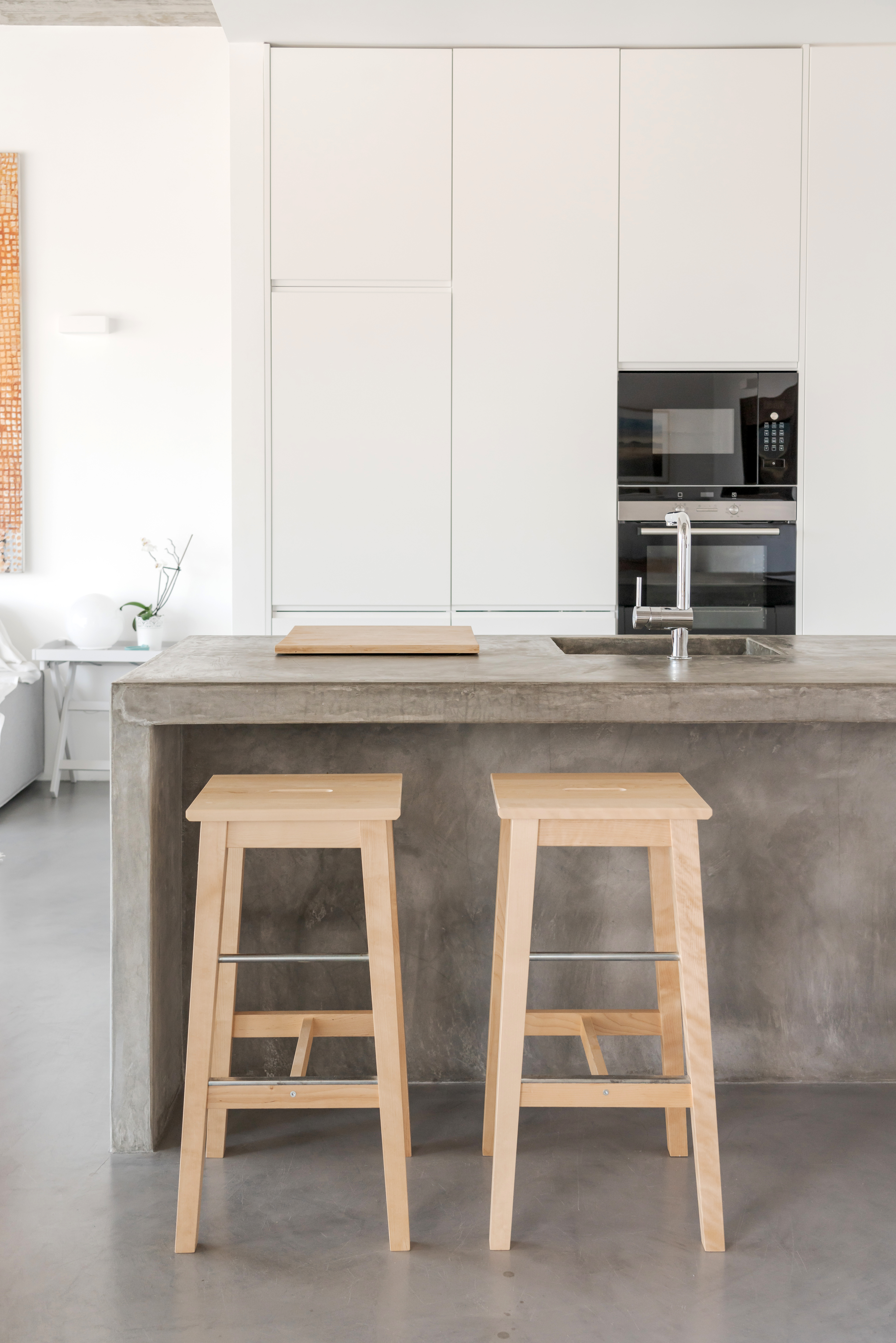
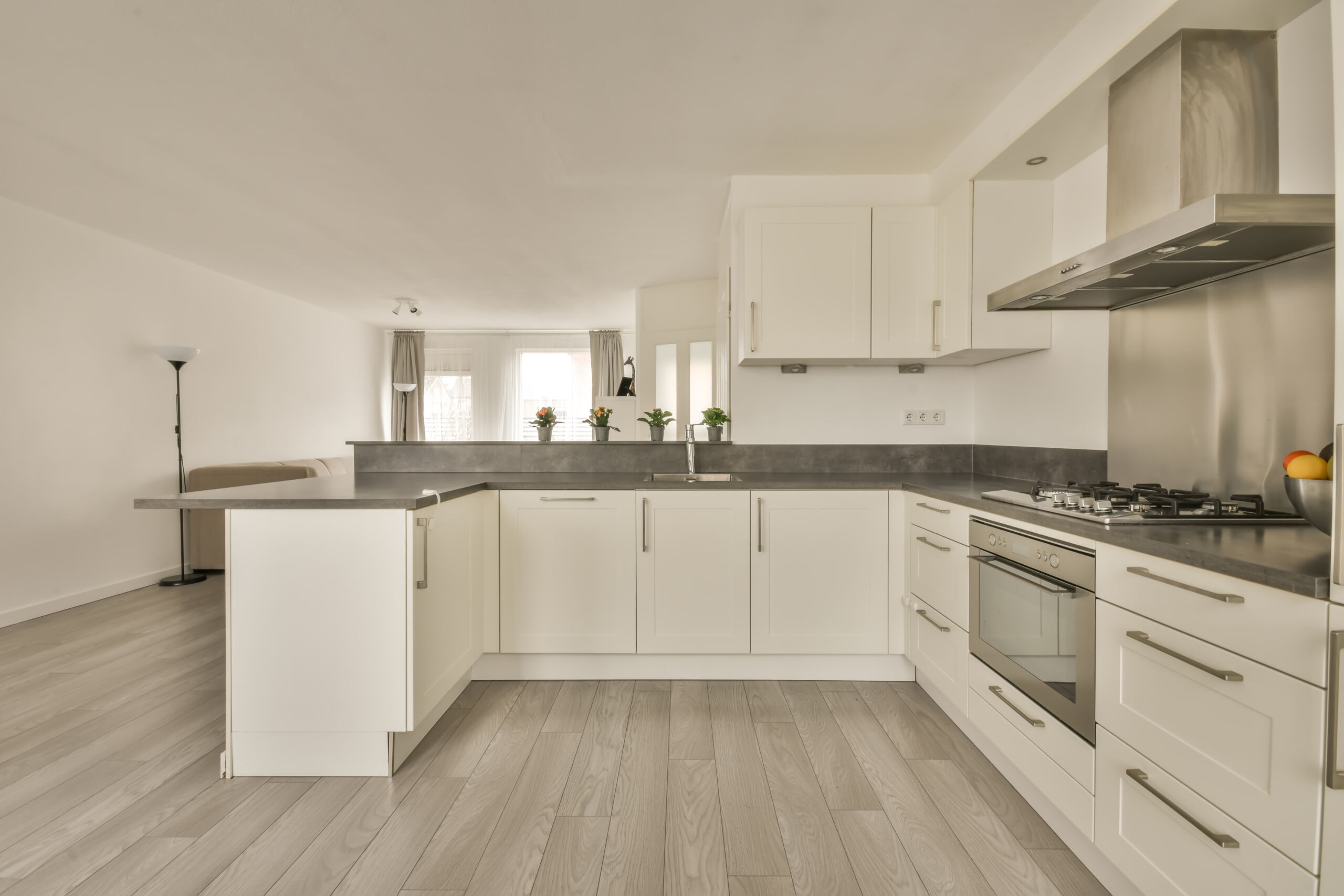
Design Advantages: Seamless Elegance
One of the standout features of microcement is its ability to create a seamless, grout-free surface. Unlike traditional tile installations, which often leave visible lines that can disrupt the flow of a design, microcement offers a continuous finish that enhances the overall aesthetic. This makes it a top choice for modern, minimalist, and industrial design styles, where clean lines and uninterrupted surfaces are essential.
With microcement, you can achieve a timeless, cohesive look on walls, floors, countertops, and even furniture. Its range of colors and textures allows for endless design possibilities, whether you want a soft, matte finish or a polished, high-gloss effect. This flexibility makes microcement a versatile option for any design vision.
- Seamless Appearance: Its smooth, continuous surface gives interiors a sleek and modern aesthetic.
- Durability: Highly resistant to wear, microcement is ideal for both residential and commercial spaces.
- Versatility: It can be applied over various surfaces, including drywall, wood, and even tiles.
- Waterproof: Perfect for bathrooms and kitchens, where water exposure is common.
- Customizable: Microcement can be tinted in a variety of colors and finishes, from matte to glossy, to suit any design style.
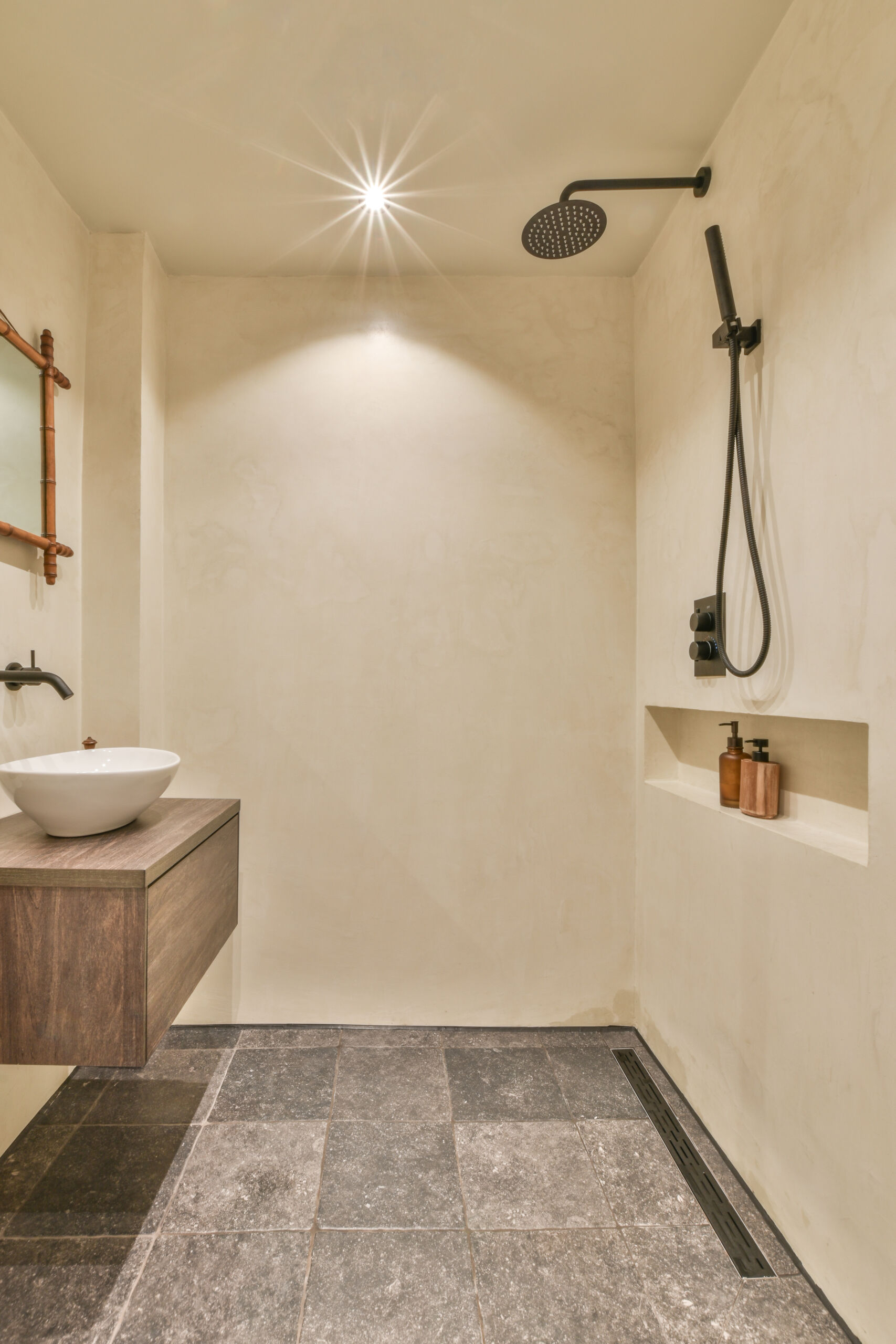

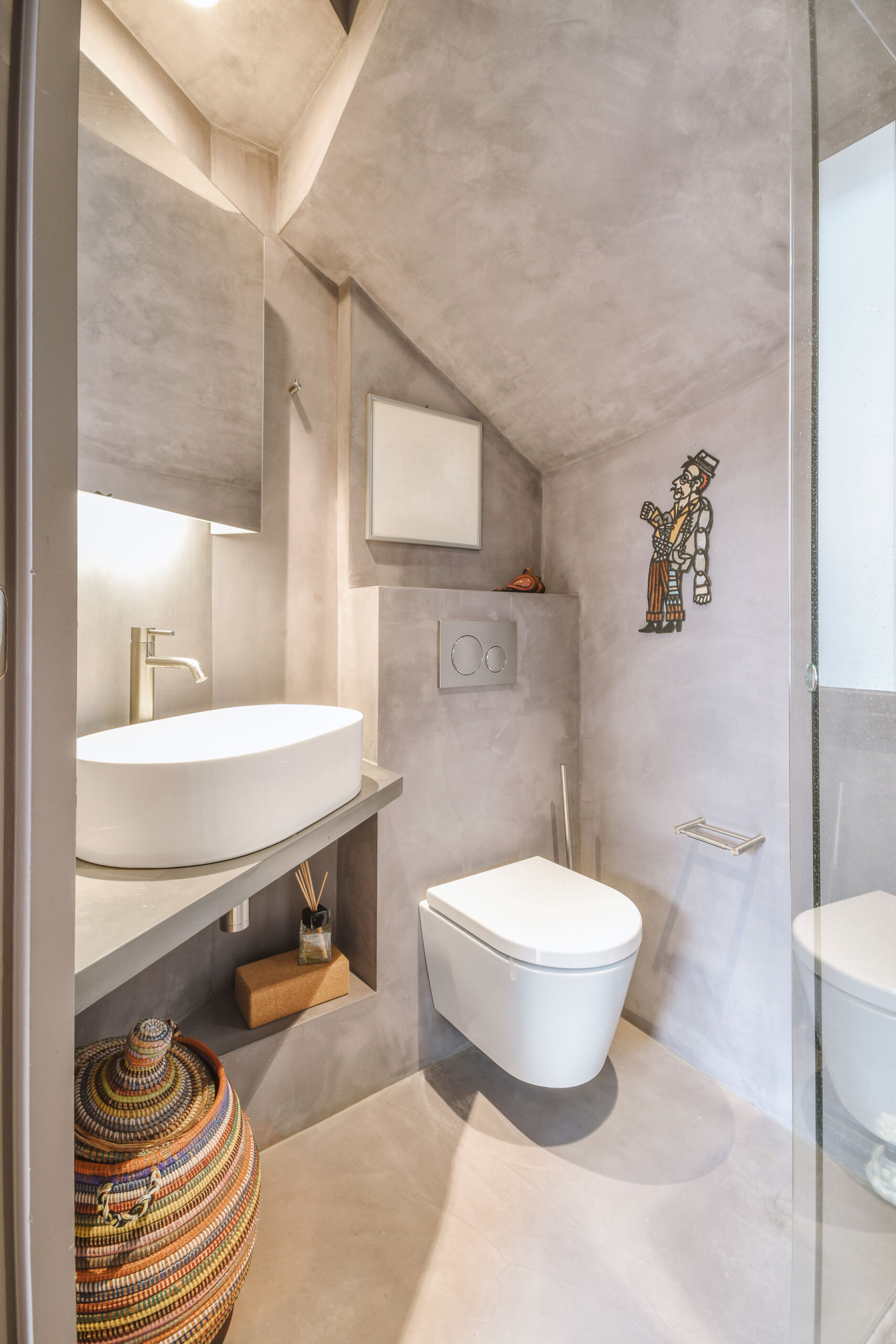
FAQ about Microcement Countertops / microcement Worktops
What are the disadvantages of microcement?
While microcement is a highly durable and versatile material, it does have some drawbacks. It requires professional application to ensure a flawless, crack-resistant finish. Without proper sealing, it may be susceptible to stains and moisture absorption. Additionally, microcement can develop hairline cracks over time if the underlying surface shifts or expands.
Is microcement good in kitchens?
Yes, microcement is an excellent choice for kitchens. It creates a seamless, modern surface that is resistant to heat, stains, and scratches when properly sealed. Its non-porous nature makes it hygienic and easy to clean, ideal for countertops, backsplashes, and even flooring.
How long do cement-like countertops last?
Microcement countertops can last for decades when installed and maintained correctly. Their longevity depends on the quality of the materials used, proper sealing, and regular care. Unlike traditional concrete, microcement does not require thick layers, reducing the risk of cracking while maintaining durability.
How much does microcement cost?
The cost of microcement varies depending on the project size, surface preparation, and the level of customization. In Toronto, professionally applied microcement countertops typically range from $20 to $35 per square foot, including materials and labor. This price can fluctuate based on color selection, sealing options, and surface complexity.
What kind of cement do you use for countertops?
Microcement is a specialized cement-based coating designed for thin applications over existing surfaces. Unlike traditional concrete, which requires thick layers and reinforcement, microcement is applied in multiple thin coats, creating a durable yet lightweight finish. High-quality microcements, such as those used by professional applicators, contain polymer additives for enhanced flexibility and resistance to wear.
Do microcement countertops have good thermal and chemical resistance?
Absolutely. Microcement has excellent thermal resistance, meaning it can withstand temperature changes without warping or deteriorating. It is also highly resistant to household cleaning products, making it a practical choice for busy kitchens that require frequent maintenance.
Can microcement countertops be waterproof?
Yes! With the right sealing process, microcement surfaces can be made completely waterproof. High-quality varnishes and sealers, ensure that kitchen walls, floors, and countertops are protected against water exposure. These coatings not only prevent moisture penetration but also add extra durability to the surface.
Achieve a Professional Microcement Countertop
Microcement countertops redefine contemporary design with their durability, seamless beauty, and versatility. Whether you’re looking for an elegant kitchen island, a sleek bathroom vanity, or a statement piece in a commercial space, this material offers a modern, low-maintenance solution.
For best results, always trust a professional applicator to ensure long-lasting performance and a flawless finish.

